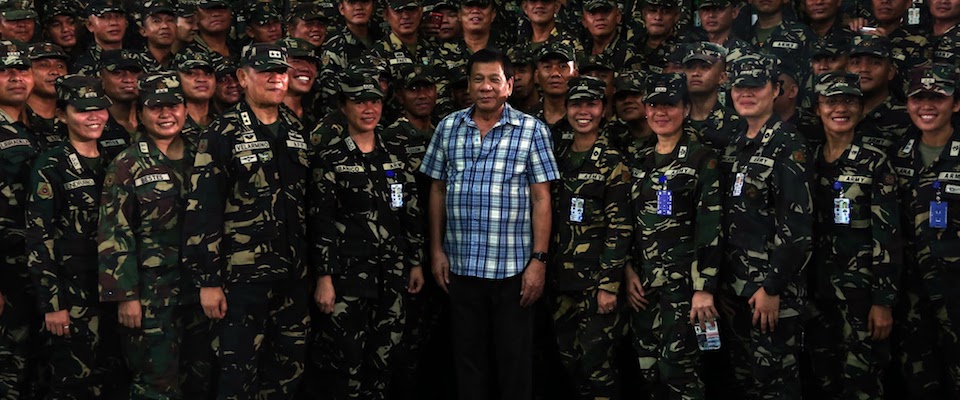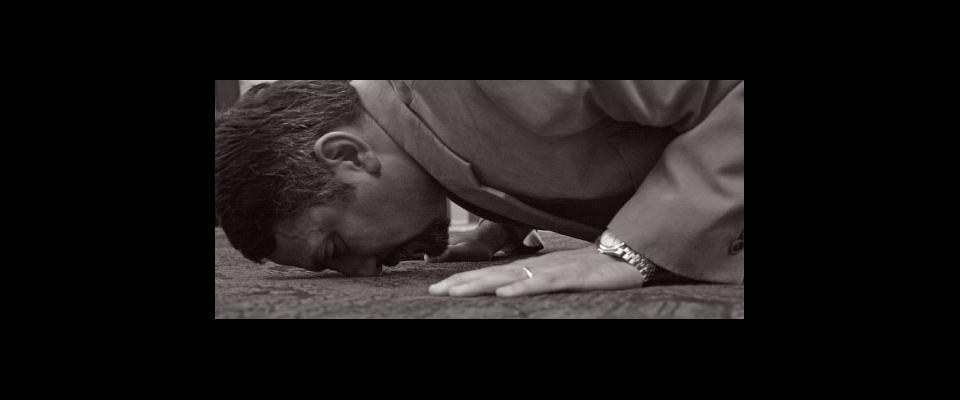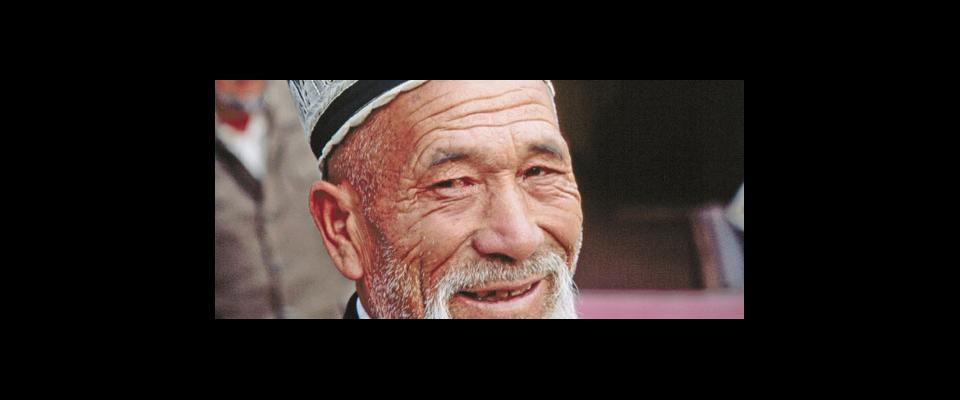The Islamic State has been largely expelled from Mosul, Iraq’s second-largest city, and a coalition of Syrian, Iraqi, and Kurdish forces are tightening the noose around Raqqa, the capital of the Islamic State’s self-declared caliphate. But while ISIS is rapidly losing territory, its “brand” is proving exceedingly difficult to eliminate. It’s much like a squishy stress-toy, popping up in one area when compressed in another.
The most recent example is in the city of Marawi on the Philippine island of Mindanao, where most of the country’s Muslim minority lives, and where the Armed Forces of the Philippines (AFP) have been waging an urban battle against guerrillas who have declared allegiance to ISIS. So far, the fighting has resulted in more than 400 casualties, including more than 70 soldiers, around 45 civilians, and more than 300 insurgents.
There is no immediate end to the battle in sight, and the conflict has raised fears that ISIS may be expanding to Southeast Asia even as it loses ground in the Middle East. The Philippines, after all, has a long history of radical insurgency in its southern islands, and ISIS, it is thought, may now be sprouting in such fertile and harrowed soil.
“It’s about local groups with local grievances who are claiming an association with ISIS for what is essentially street credibility.”
But some experts familiar with the situation say such an assessment is overly simplified and likely hyperbolic. To a degree, the current fighting is simply the latest iteration of a struggle that has gone on for centuries, says UC Berkeley Ph.D. Mark Juergensmeyer, the founder and former director of the Orfalea Center for Global and International Studies at the University of California, Santa Barbara, and an authority on religious violence and conflict resolution in South Asia.
“In general, this harkens to Muslim regional identity and cultural pride in Mindanao,” says Juergensmeyer, “and it’s also about control of [agricultural] land and resources. More particularly, it’s about local groups with local grievances who are claiming an association with ISIS for what is essentially street credibility.”
Jason Klocek, a Cal political science Ph.D. candidate specializing in religious and political violence, agrees that the fighting in Marawi is more about local insurgent actors jockeying for position than it is a geopolitical coup by the Islamic State. To get a grasp on the situation in Marawi, says Klocek, it’s necessary to understand the complex relationships that characterize Islamic resistance in Mindanao and their significance to the larger Filipino culture.
The insurgents fighting in Marawi are members of the Maute Group, an organization founded by two brothers, Abdullah and Omar Maute. Along with other groups, they spun off from a larger organization, the Moro Islamic Liberation Front (MILF).
The MILF, says Klocek, was in turn derived from another large insurgent group, the Moro National Liberation Front (MNLF). The MNLF’s original beef was more about land tenure and establishing a Moro (Philippine Muslim) homeland than religious orientation, with fighters resisting the incursion of Christian farmers and settlers, a trend that has been ongoing for decades. The MILF was formed when some members returned from overseas jihad in Iraq and Afghanistan and wanted to impose stricter Islamic observances in the MNLF ranks, says Klocek.
“Ultimately, the MILF supplanted the MNLF,” says Klocek. “The MNLF hasn’t been much of a force since the 1990s or early 2000s.”
Despite promoting stricter religious observances than the MNLF, the MILF is relatively moderate by Islamic insurgent standards. But while the MILF represents the real power in Islamic interests in Mindanao, says Klocek, other more radical elements have received most of the publicity since 9/11. Abu Sayyaf, for example, a group originally formed in the Sulu Archipelago south of Mindanao, gained tremendous notoriety in the early 2000s for a series of kidnappings and beheadings, one involving an American citizen.
All these various groups cross-pollinate, says Klockek, and are often bound by family or clan relations. The Maute brothers, for example, are first cousins of Azisa Romato, the spouse of the late MILF Vice Chairman for Military Affairs, Alim Abdul Aziz Mimbantas. And Isnilon Hapilon, the erstwhile leader of Abu Sayyaf, pledged fealty to ISIS and was declared the “emir” for all Islamic State forces in the Philippines by ISIS leader Abu Bakr al-Baghdadi in 2016. Hapilon has been spotted with Maute Group fighters in Marawi.
What it all comes down to, says Klocek, is that organizations like Abu Sayyaf and the Maute Group are small and relatively weak; claiming allegiance to ISIS is a way to raise their profiles.
Mindanao is unlikely to become a stronghold for radical Islam as long as only marginalized groups like Abu Sayyaf and the Maute Group champion it.
“When Hashim Salamat [the leader of the MILF] died [from heart failure] in 2003, a number of commanders separated and formed their own groups,” says Klocek. “But they never had the numbers of fighters or financial support of the MILF. They’re probably not getting much in terms of financing or arms [from the fighting], but it does bolster their profile.”
The upshot is that Mindanao is unlikely to become a stronghold for radical Islam as long as only marginalized groups like Abu Sayyaf and the Maute Group champion it. That could change, however, if the MILF decided to re-enter the fray under the banner of ISIS, Al-Qaeda, or any similar insurgency.
“There were real hopes for peace in 2014, when [then–Philippine president Benigno] Aquino negotiated a comprehensive peace accord with the MILF,” says Juergensmeyer. “Unlike earlier agreements, it provided significant resource control by Muslims in Mindanao. But it still hasn’t been approved by the Philippine Congress, and that has a lot of people worried about marginal radical groups who may feel animated by the lack of progress. I was in Cotabato [on Mindanao] last year, and many of the people I talked to said they felt there was perhaps a year or so at most to fully implement the agreement before things started unraveling. It seems these prophecies may have been accurate.”
Right now, says Kolcek, groups like Abu Sayyaf are a thorn in the side not just of the AFP but regional nations as well, “…because they often use safe havens in Malaysia and Indonesia. That’s probably the main reason these attacks will continue on a certain level—the AFP can’t stop funding, and it can’t eliminate safe havens in either neighboring countries or on all the small islands around Mindanao. But if only small radical groups claim allegiance to ISIS, then the situation should be containable.”
With any MILF involvement, says Klocek, “The attacks would be much bigger, far more coordinated, and the impacts would be much greater and much more tragic. And it wouldn’t just be a matter of increased military casualties. During the MILF’s last major campaigns, there was tremendous civilian displacement: from 500,000 to 750,000 refugees at times. People went hungry, farmers lost their crops, and the economic and civil impacts were tremendous.”
Juergensmeyer says MILF leaders largely view Abu Sayyaf and associated groups as simple thugs more concerned about kidnapping hostages for ransom than furthering broader Islamic equity in Mindanao.
The Philippine government has nothing to gain by destroying Marawi in order to save it.
“That said, MILF leaders are nervous about the stalled implementation of the peace agreement,” says Juergensmeyer. “They’ve put a lot of credibility into the peace process, and if it falls apart they’ll lose legitimacy, and it’ll be hard to keep their people in check. So in that sense, Marawi could be seen as a rather dire signal.”
Despite its relatively small size, the Maute Group seems to have fought the AFP close to a draw in Marawi; government forces are making progress, but it’s incremental. That’s likely deliberate strategy, says Klocek. The Philippine government has nothing to gain by destroying Marawi in order to save it.
“AFP commanders are trying to minimize civilian casualties,” Klocek says. “It’s also clear the guerilla fighters are using some civilians either as hostages or human shields, and that works to moderate AFP aggression. Finally, the AFP doesn’t have much experience in urban warfare. They’re used to fighting in the countryside. They’re learning as they go.”
Does the United States have a role to play in this fight? To a limited degree, says Klocek. U.S. advisers already are providing technical assistance to government troops. But a major commitment in a “boots on the ground sense”—U.S. combatants—is both unlikely and inadvisable.
“In Iraq and Afghanistan, we learned a lot about both urban warfare and fighting in spaces where religion matters,” says Klocek. “We’ve done it well at times—for example, requiring soldiers to remove their boots before entering a mosque, or refraining from directly attacking a mosque—and we’ve also done it poorly, such as blowing up mosques. If a mosque does require an attack, it’s far better to have Muslim soldiers do it than non-Muslim soldiers. Those are certainly some of the lessons we should pass along. But above all, the U.S. should remain in a rigorously advisory capacity. The key to AFP success in Marawi is not U.S. intervention.”
Juergensmeyer says Philippine President Rodrigo Duterte could probably end the fighting by pressuring the country’s Congress for full approval and implementation of the 2014 peace accords. But so far, Duterte—widely criticized for his quixotic and confrontational style and a drug war that has resulted in the extrajudicial killings of thousands of Filipinos—has resisted any ambitious initiatives.
“The ball really is in Duterte’s court at this point,” Juergensmeyer says. “If he doesn’t lean on Congress, and rejuvenate the peace process, he’ll find he created a Frankenstein monster. MILF leaders were moderately optimistic when he was elected president because he originally was from Mindanao. [For many years, Duterte served as mayor of Davao, the largest city in Mindanao and the second-largest in the Philippines.] But since his election, he’s mainly just sent in troops, first to fight Abu Sayyaf in the Sulu Archipelago, and then in Marawi. If he obtained congressional approval for the accord, I think it would give him the room he needs to mop up Abu Sayyaf and prosecute the remaining splinter groups, and it’d give the MILF the authority they need to maintain control over their followers.”




















